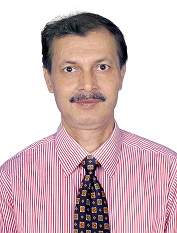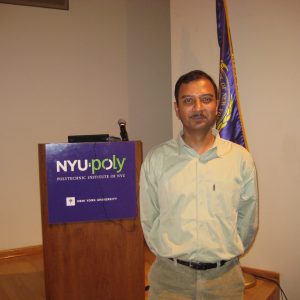"India’s Genomic Revolution: 10,000 Whole Genome Samples Now Accessible Globally"
"Prime Minister Modi Congratulates Scientific Community as India Poised to Lead the Next Generation Revolution in Biotech"
Posted On: 09 JAN 2025 7:51PM by PIB Delhi
Making a vital move towards self-reliance in the field of genomics, Dr. Jitendra Singh, Union Minister of State (Independent Charge) for Science and Technology, today announced that India is no longer dependent on foreign genomic data. At the Genome India Data Conclave, held at Vigyan Bhavan, New Delhi,
Under the leadership of Prime Minister Narendra Modi the Indian Genomic Data Set unveiled and Union Minister Dr. Jitendra Singh launched the ‘Framework for Exchange of Data Protocols (FeED)’ and the Indian Biological Data Centre (IBDC) Portals, making 10,000 whole genome samples accessible to researchers across India and the globe.
Addressing the conclave, Dr. Singh proudly stated, “India has developed its own genomic data set, a monumental achievement that will fuel future medical and scientific breakthroughs. The entire collection of 10,000 whole genome samples, archived at IBDC, is now made available for research purposes not only within India but globally. This data set will serve as a critical resource for genomics research, contributing to advancements in personalized healthcare and medicine.”
The Indian Biological Data Centre (IBDC) will facilitate seamless access to valuable genetic information, enabling researchers to explore genetic variations and design more accurate genomic tools. The 10,000 whole genome sequencing (WGS) samples come from diverse Indian populations and provide a rich catalog of genetic variations. This initiative is set to position India as a leader in genomics, enabling the development of genomic chips tailored to the Indian demographic, thereby enhancing the precision of genetic studies.
Dr. Singh emphasized the significance of the 'GenomeIndia' project, spearheaded by the Department of Biotechnology (DBT), which aims to create a robust and comprehensive database of India’s genetic diversity. The data will serve as a foundation for cutting-edge research and will catalyze innovations in areas such as mRNA-based vaccines, protein manufacturing, and genetic disorder treatments. He said in India there is diversity not only in food, culture and geography but also in Genome.
The launch of the ‘Framework for Exchange of Data (FeED)’ Protocols under the Biotech-PRIDE Guidelines ensures that the high-quality, nation-specific data will be shared in a transparent, fair, and responsible manner. The Biotech-PRIDE Guidelines, introduced in 2021, are a testament to India’s commitment to ethical and secure data sharing.
Dr. Singh highlighted the impressive growth of India’s bioeconomy, which has surged from $10 billion in 2014 to over $130 billion in 2024, with projections to hit $300 billion by 2030. The Minister attributed this growth to the visionary leadership of Prime Minister Narendra Modi and the new Bioeconomy Policy, which is set to make India a global leader in biotech, positioning the country to lead the 4th industrial revolution.
India now ranks 12th globally in biotech and 3rd in the Asia-Pacific region. The Minister also pointed out that India is the largest vaccine producer in the world and the third-largest startup ecosystem. The rapid rise of biotech startups—from just 50 in 2014 to over 8,500 in 2023—demonstrates India’s growing leadership in biotechnology and its potential to revolutionize the global bioeconomy.
Dr. Jitendra Singh further announced a future target of sequencing 10 million genomes to accelerate India’s advancements in genomics and personalized medicine. He also suggested expanding the initiative by collaborating with prominent institutions such as the Tata Memorial Hospital to enhance data enrichment efforts.
Dr. Rajesh S. Gokhale, Secretary of DBT said with Genomic Data Avialble we can counter genetic and hereditary diseases.
Prof. Ajay Kumar Sood, Principal Scientific Adviser to the Government of India, spoke about the transformative potential of this data, emphasizing its role in the prevention and cure of genetic disorders. He also highlighted that the data generated from the GenomeIndia project would not only strengthen healthcare but also provide invaluable insights for agricultural, environmental, and industrial research.
Dr. Rajiv Bahl, Director General of ICMR; Dr. Y Narahari, CBR, IISc Bengaluru; Dr. Arvind Sahu, Executive Director RCB and senior officials from the concerned scientific ministries were present at the event, underscoring the collective effort behind the success of this project.
In his video message, Prime Minister Narendra Modi congratulated the scientific community on this achievement and laid out a roadmap for India’s future in genomics. He praised the initiative as a testament to India’s scientific prowess and its vision for the future of healthcare and biotechnology. This initiative will also develop an ecosystem which would act as Knowledge hub and Innovation Hub and contribute to make Viksit Bharat @2047. He also reiterated that Pro-people governance, Digital Public infrastructure development and Genomic Data Bank will empower India.
The ‘GenomeIndia’ project is poised to make India a global hub for genomic research, positioning the country at the forefront of the next scientific and medical revolution.
Source: https://pib.gov.in/PressReleasePage.aspx?PRID=2091577















